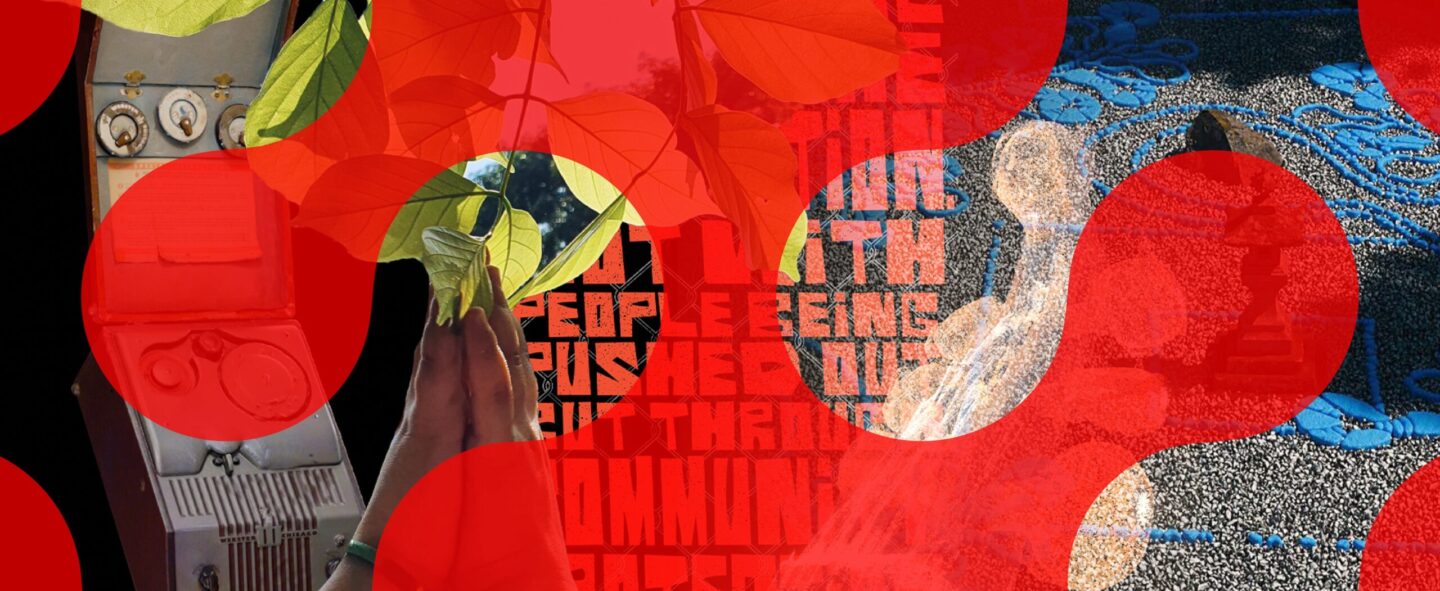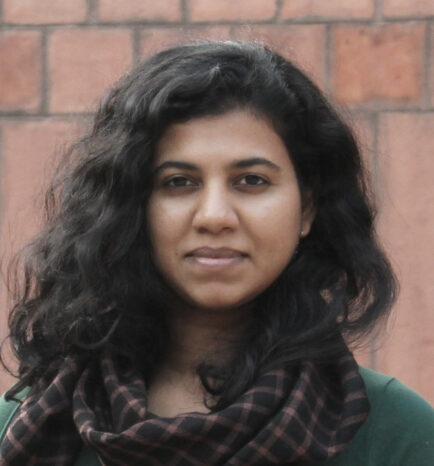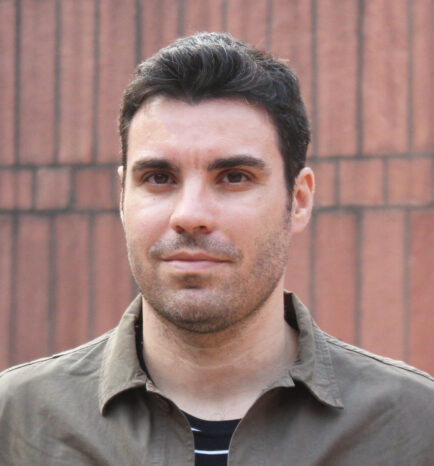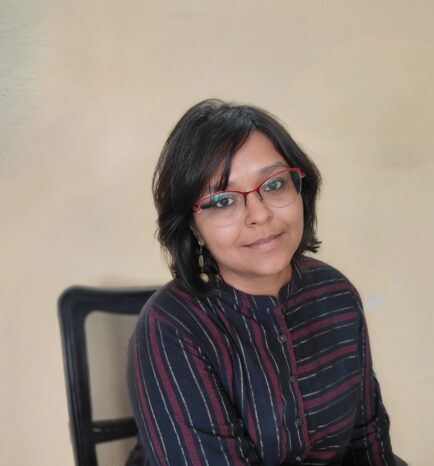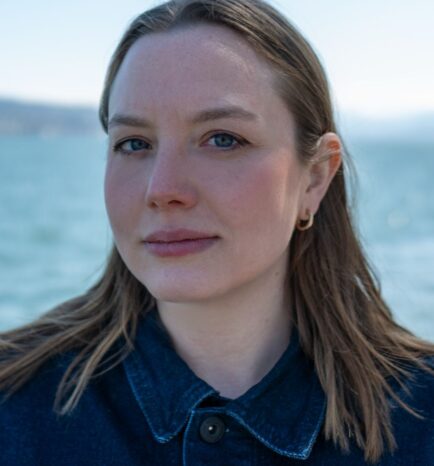
Divya Sankar
In this talk series, examine how modernist design principles have taken root and evolved in diverse ecological, social and cultural landscapes of the Global South through design archives. Watch the webinar here.
Design serves as a universal language, connecting time, cultures and disciplines. In the year of their 150th anniversary celebration, the Museum für Gestaltung Zürich is collaborating with designers and artists from around the world to create a unique collection of exhibitions, events and talks in Japan, the USA, China, Brazil and India! Learn more about this initiative here.
In India, Swissnex is hosting a hybrid panel discussion exploring how digital archiving practices shape the way we preserve and reinterpret design histories. What stories are remembered, what forms are archived, and what is left out? The session invites reflections on how artists arrived at the works they created for MfG’s anniversary exhibit, and how these choices were influenced by the evolving nature of digital tools and local ecosystems. Bhavana Kumar and Nicola la Noce, founders of the Bangalore-based architecture and urbanism studio Kumar La Noce, will join the discussion to share perspectives rooted in the Indian context.
In Brazil, the event will be hosted at the University of São Paulo (USP) and livestreamed to students at the Zurich University of the Arts (ZHdK). Moderated by Felipe Kaiser (USP), the session will feature artists Matheus Leston and Osmond Tshuma and will spotlight design historiography, archival practices and their intersections with ecological and social contexts in Brazil.
Join us for this unique opportunity to engage with artists, designers and educators who are reshaping the narratives of modernism through new approaches to memory, technology and storytelling.
About this event: The Museum für Gestaltung Zürich, one of Switzerland’s leading institutions for design and visual communication, is pleased to announce a global digital exhibition and event series in partnership with Swissnex. This initiative is part of the museum’s 150th-anniversary celebrations and aims to strengthen its international presence and foster global collaboration. Attend related events in person or virtually. Details will be released soon.
Bio
Bhavana Kumar is an architect and visual researcher based in Bengaluru. Her current work investigates the cultural and spatial significance of iconic modernist furniture, with a particular focus on the evolving concept of comfort in postcolonial contexts. Through a visual collage methodology, her research engages with design history, material culture and questions of locality. She has collaborated with academic institutions and museums to examine how global design objects are reinterpreted within Indian ecological and social frameworks.
Bio
Nicola la Noce is an architect and co-founder of the Bengaluru-based architecture and design practice Kumar La Noce. Originally from Italy, he brings a cross-cultural perspective to contemporary architectural discourse, drawing on both European modernist traditions and South Asian spatial practices. His work spans residential, institutional and cultural projects, with a focus on contextual design, material experimentation and ecological responsiveness. Nicola is actively involved in academic and curatorial initiatives and has lectured on architecture and urbanism at institutions in India and abroad.
Bio
Matheus Leston is an artist, musician and creative technologist whose interdisciplinary practice spans Brazil and Europe. With a background in multimedia development and a focus on interactive storytelling, his work explores the intersections of digital technology, cultural memory, and ecological awareness. Leston has collaborated with academic and cultural institutions across Latin America and Europe, contributing to projects that integrate design, media, and critical historiography.
Bio
Osmond Tshuma is a graphic designer based between Zimbabwe, South Africa and New York. His work is informed by a strong interest in political and social narratives, particularly within the context of African identity and activism. Drawing inspiration from designers such as Paul Peter Piech, Tshuma engages with archival material, typography, and illustration to create posters and visual artefacts centred on activist voices. He has presented his work in international forums and is recognised for his contribution to socially engaged graphic design.
Bio
Ishita Shah is trained as an interior designer and an architectural historian. Over the last few years, she has been developing a community-based curatorial practice, focusing on cultural preservation and creative collaborations across individuals, families, and organizations invested in making invisible histories visible from India and South Asia. Her work is situated under the aegis of a self-founded collective, Curating for Culture, where two critical initiatives have emerged: a six-month-long incubation program called Constructing Personal Archives and a digital repository of histories of women practitioners from Indian architecture and allied disciplines, Women of Vaastukala. She is currently a consulting archivist and curator at Pattani Archives, Bhavnagar; Queer India Archives, Mumbai; Glenmorgan Estate, Ooty; and Shreyas Foundation, Ahmedabad. She also teaches across various programs at the intersection of design, history, curation, and technology.
Ishita has previously worked with Biome Environmental Solutions Pvt. Ltd. to curate their recent publication, Biome Diaries: Ecological Architecture from India, as well as collaborated with organizations like the National Centre for Biological Sciences, INTACH Bengaluru, Arthshila Ahmedabad, the Ministry of Culture at Govt. of India; to curate and develop a wide range of public interpretation projects. Before this, she was an educator and the coordinator to the UNESCO Chair in Culture, Habitat, and Sustainable Development at the Srishti Institute of Art, Design, and Technology. She has also been the founding archivist and oral historian at CEPT Archives and worked with the Royal Institute of British Architects (UK), INSITE Magazine, SPADE India Research Cell, and Design Innovation and Craft Resource Centre.
Ishita has been a secondment to the OMHI research project funded by the European Union (2024), a fellowship student at The Alternative Art School (2022), a Khoj CISA Fellow (2021), and a Graham Foundation Grant recipient (2020).
Bio
Sophie Grossmann studied Cultural Publishing at the Zurich University of the Arts (ZHdK) and holds a second graduate degree in Art History, with a focus on the History of Textile Arts, from the University of Bern. Sophie joined the Museum für Gestaltung in Zurich in 2021. Initially part of the Decorative Arts Collection, she has been a research associate since 2022, specialising in the challenges of collecting intangible cultural assets such as digital-born and hybrid objects, as well as digital documentation. In this role, she has led several case studies and collaborated with designers, artists and institutions to commission exhibits and curate spaces dedicated to digital collecting. Sophie has presented her work on digital collecting at various institutions, including the Istituto Svizzero in Rome and the University of Bern.
Divya Sankar
